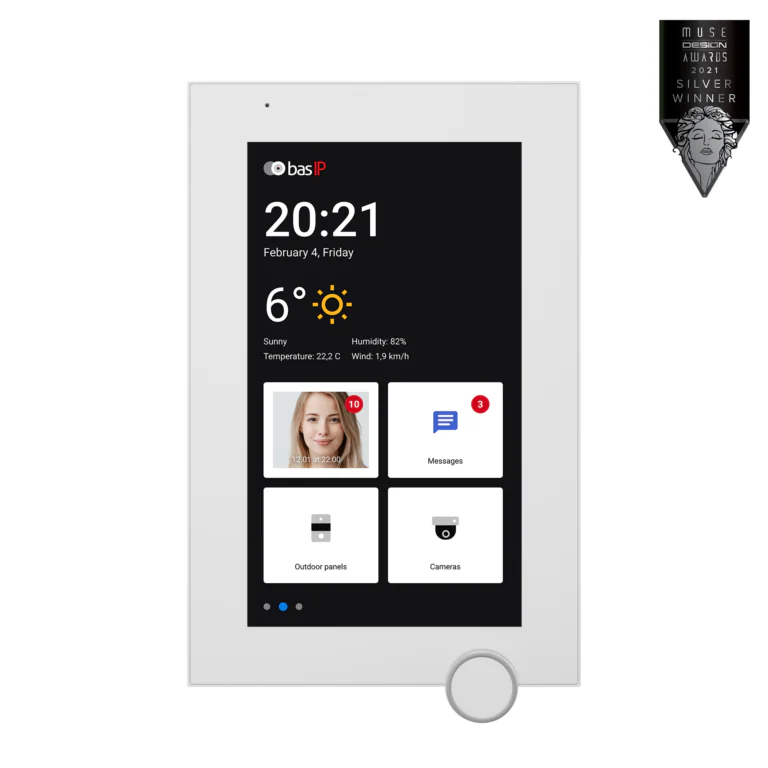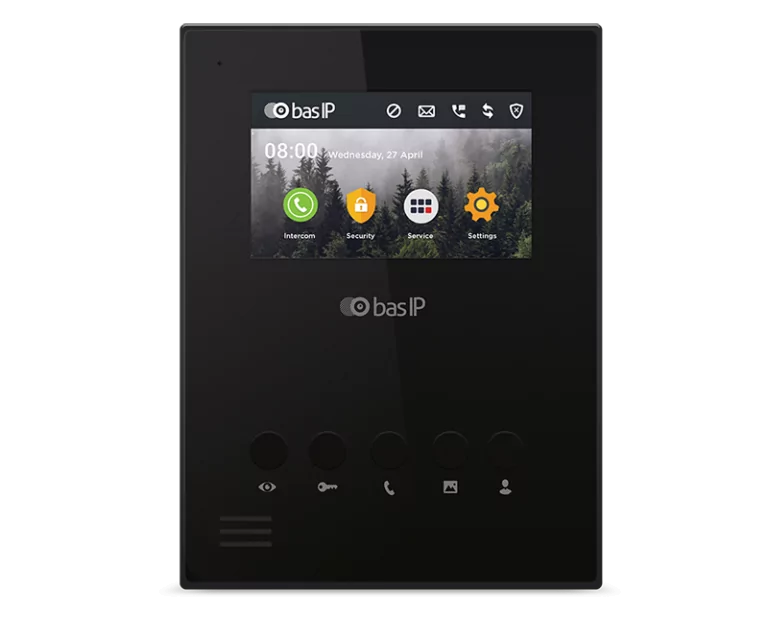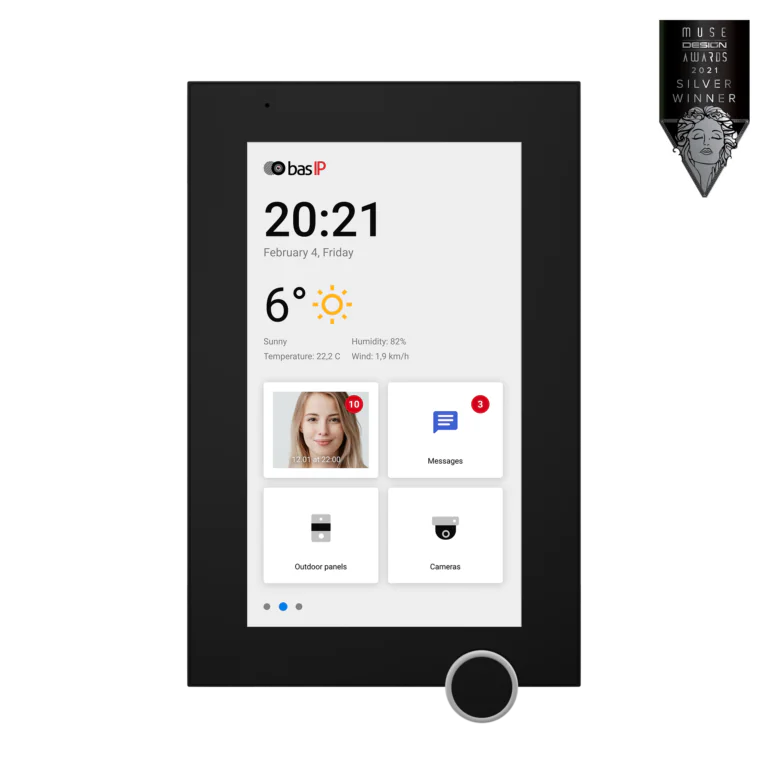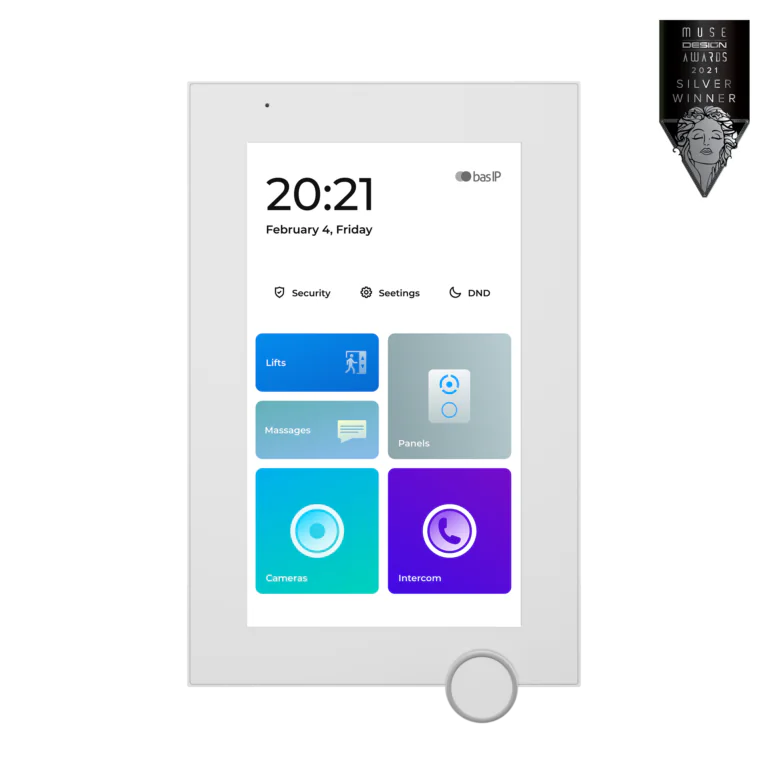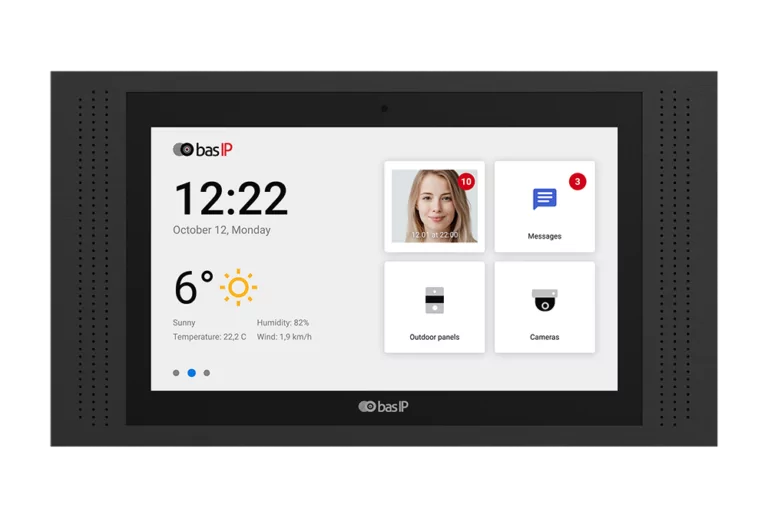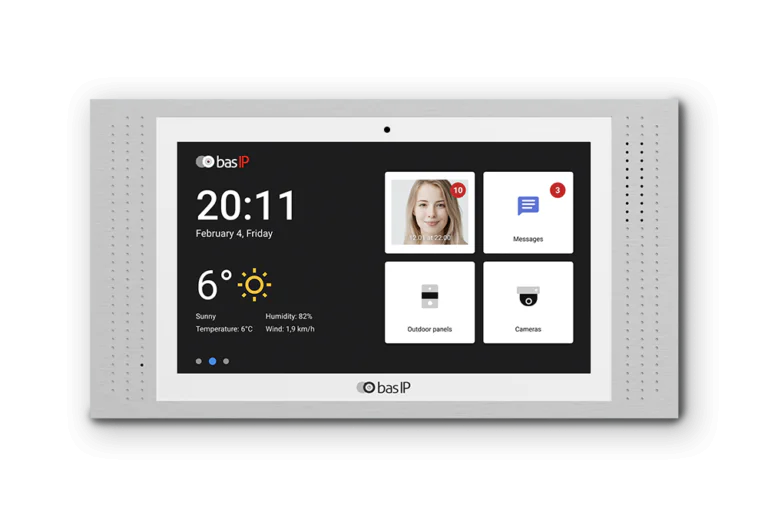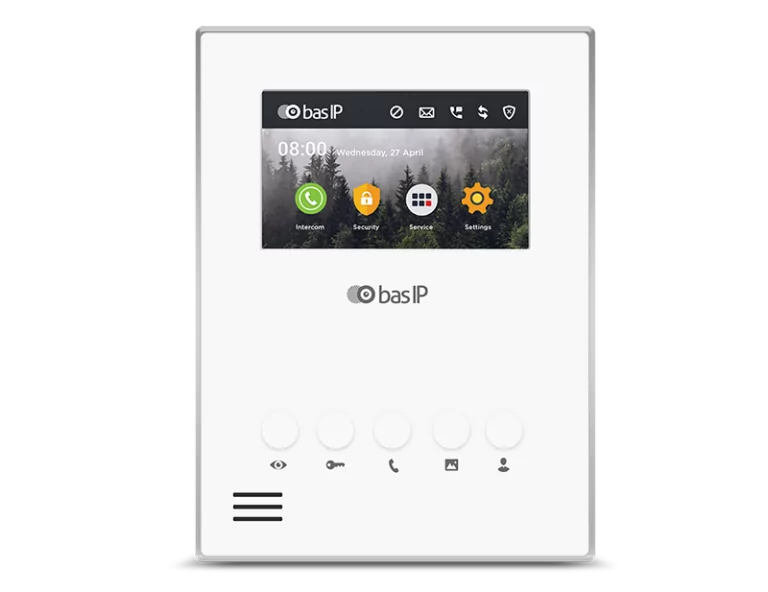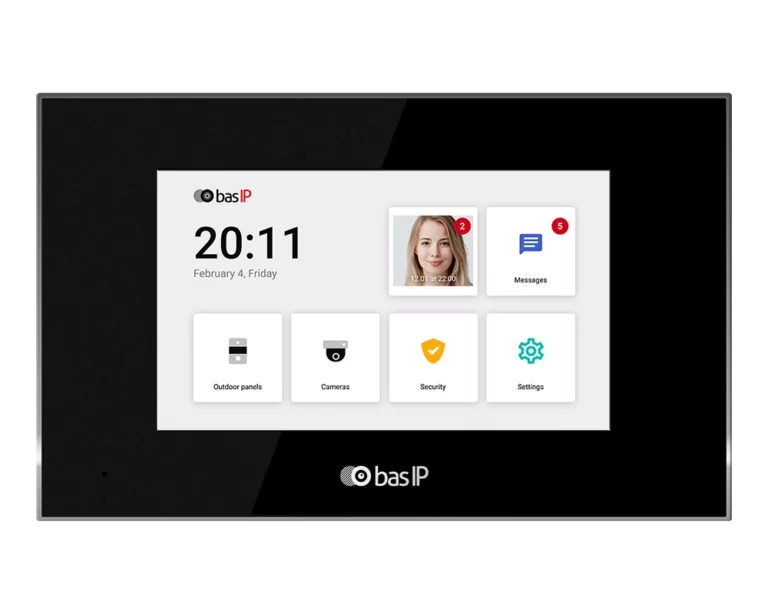Intercom Phone: 7 Key Insights for 2023 and Beyond
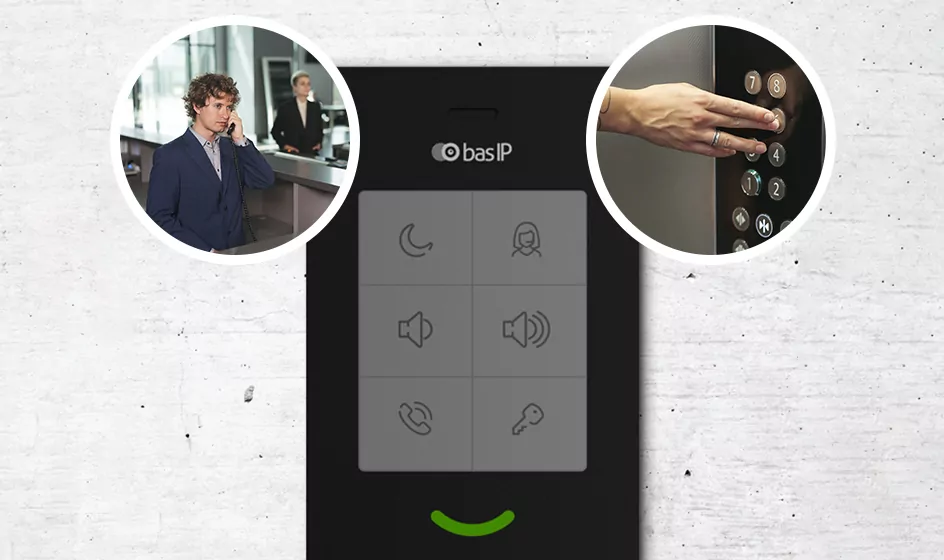
In today’s fast-paced world, the humble intercom phone has evolved into a sophisticated piece of technology. From ensuring security to enhancing communication, the significance of the right intercom phone system cannot be overstated. But what exactly is an intercom phone? And why is everyone talking about IP intercom phones? Let’s delve in.
What is an Intercom Phone?
An intercom phone, at its core, is a standalone voice communication system installed within a building or a collection of buildings. It functions independently of the public telephone network, ensuring swift and secure communication. Originating from simple doorbell systems, these devices have come a long way, with the latest trend being IP intercom phones.
Diving into the Types of Intercom Phones

The world of intercom phones is vast and varied. As technology has advanced, so too have the options available to consumers and businesses alike. Whether you’re looking for a simple communication solution for your home or a sophisticated system for a large commercial building, there’s an intercom phone designed to meet your needs. Let’s take a closer look at the different types of intercom phones available in the market today.
Wired Intercom Phones:
How They Work: Wired intercom phones rely on physical cables to connect different units within a building or complex. These cables can be made of various materials, including copper or fiber optics, and they transmit voice signals from one unit to another.
Pros:
- Reliability: With a direct physical connection, there’s less chance of interference or signal dropouts.
- Security: Wired systems are generally harder to hack or tamper with compared to wireless alternatives.
Cons:
- Installation Complexity: Setting up a wired system can be labor-intensive, especially in older buildings where walls may need to be opened to lay cables.
- Limited Flexibility: Once installed, it’s challenging to move or expand the system without significant work.
Wireless Intercom Phones:
How They Work: Instead of relying on physical cables, wireless intercom phones use radio frequencies or Wi-Fi connections to communicate. These systems consist of multiple units that can be placed anywhere within their signal range.
Pros:
- Easy Installation: Without the need for cables, setting up a wireless system is often quicker and less invasive.
- Flexibility: Units can be easily moved or added as needed, making it ideal for growing businesses or homes.
Cons:
- Potential Interference: Other electronic devices or thick walls can interfere with the signal, leading to reduced sound quality or dropped connections.
- Security Concerns: Without proper encryption, wireless systems can be more vulnerable to hacking or eavesdropping.
Video Intercom Phones:
Features:
Video intercom phones take communication to the next level by adding a visual component. These systems come equipped with cameras, allowing users to see who they’re speaking with. This feature is especially valuable for security purposes, such as verifying the identity of a visitor before granting them access.
Use Cases:
- Enhanced Security: By seeing who’s at the door or gate, users can make informed decisions about granting access.
- Business Communication: In corporate settings, video intercoms can facilitate face-to-face meetings without the need for physical presence, bridging the gap between departments or even international offices.
Key Features to Look for in an Intercom Phone
| Feature | Importance | Examples |
|---|---|---|
| Sound Quality | Ensures clear communication | Noise-cancellation technology |
| Range & Coverage | Determines mobility | Extended antennas, Wi-Fi boosters |
| Security Features | Protects against breaches | Encryption, anti-hacking measures |
| Integration Capabilities | Enhances functionality | Smart home compatibility |
Intercom phones, while primarily designed for voice communication, have evolved to incorporate a myriad of features that enhance their functionality and user experience. Whether you’re a homeowner looking to bolster security or a business aiming to streamline internal communication, understanding these features is crucial. Here’s a deep dive into the essential features to consider when choosing an intercom phone:
Sound Quality:
Importance: Clear and crisp sound quality ensures that communication is effective and free from misunderstandings. It’s the backbone of any intercom system.
Technologies that Enhance Sound Quality:
- Noise-Cancellation: This technology reduces background noise, ensuring that voices are heard clearly even in noisy environments.
- Echo Reduction: Prevents the echoing effect that can sometimes occur, especially in larger rooms or open spaces.
- Volume Control: Allows users to adjust the volume to their preference, ensuring that messages are neither too loud nor too soft.
Range and Coverage:
Importance: The range determines how far apart intercom units can be placed from each other while still maintaining a clear connection. Coverage ensures that there are no “dead zones” where the signal is weak or non-existent.
Factors Affecting Range:
- Type of System: Wired systems often have a more extended (even unlimited) range than wireless ones, as they’re not limited by signal strength.
- Building Materials: Thick walls, especially those made of concrete or metal, can reduce the range of wireless systems.
Tips to Extend Coverage:
- Antennas: Some wireless intercom phones allow for the addition of external antennas to boost range.
- Repeaters: These devices can be placed between two intercom units to amplify the signal and extend the range.
Security Features:
Importance: With rising concerns about privacy and security, ensuring that your intercom system is secure from eavesdropping or hacking is paramount.
Features that Enhance Security:
- Encryption: Scrambles the communication so that it can’t be understood even if intercepted.
- Anti-Hacking Protocols: Features like dynamic password protection and secure boot processes can prevent unauthorized access.
- Physical Security: Some intercom phones come with tamper alarms that alert users if someone tries to physically tamper with the device.
Integration Capabilities:
Importance: In today’s interconnected world, having devices that can seamlessly integrate with other systems enhances functionality and user experience.
Features that Enhance Integration:
- Smart Home Compatibility: Some intercom phones can integrate with smart home systems, allowing users to control lights, locks, and other devices through the intercom.
- Mobile App Integration: Allows users to access the intercom system via their smartphones, enabling remote communication and control.
Why IP Intercom Phones are the Future
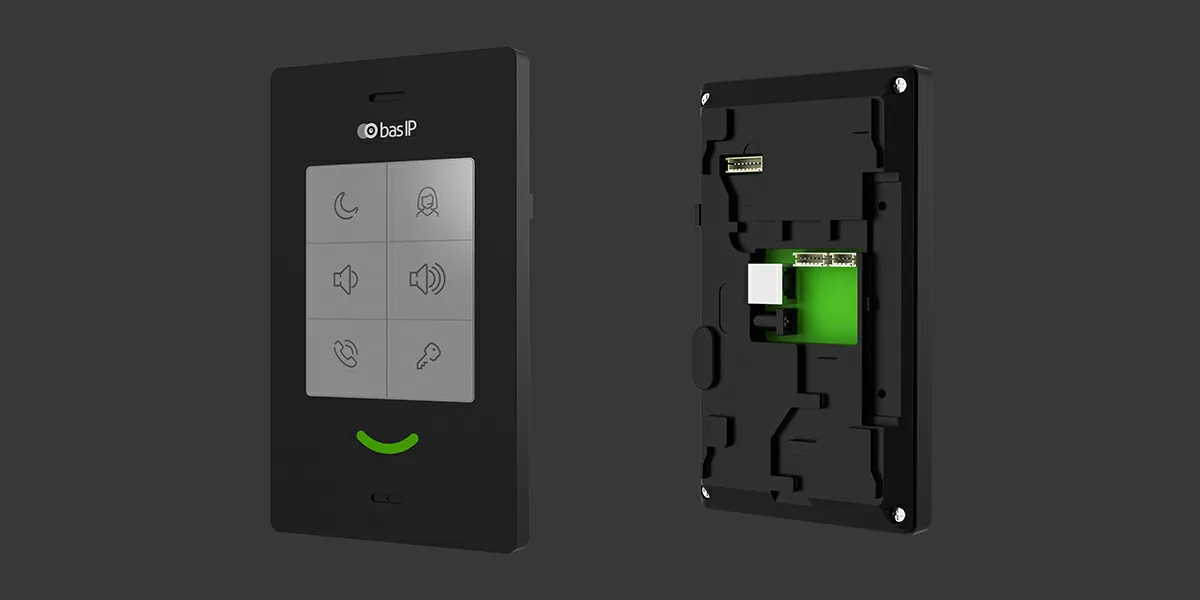
In the realm of communication technology, IP (Internet Protocol) intercom phones are emerging as the frontrunners. These devices, which use internet connections to transmit voice and video signals, are rapidly replacing traditional intercom systems. But what makes IP intercom phones the future? Let’s delve deeper into their advantages and understand why brands like BAS-IP and Comelit are leading the charge with their proprietary IP intercoms.
Seamless Integration:
One of the most significant advantages of IP intercom phones is their ability to integrate seamlessly with other IP devices. Whether it’s connecting with IP cameras for enhanced security or integrating with smart home systems for centralized control, IP intercom phones offer unparalleled integration capabilities. This seamless connectivity ensures that users have a unified and streamlined experience.
Scalability:
Traditional intercom systems often face limitations when it comes to expansion. Adding new units or extending the range can be cumbersome and expensive. In contrast, IP intercom phones offer incredible scalability. As they operate over the internet, adding new devices or expanding the network is as simple as connecting to the existing IP network. This makes them ideal for growing businesses or residential complexes that might need to expand in the future.
Remote Access:
One of the standout features of IP intercom phones is the ability to access them remotely. Users can connect to their intercom system from anywhere in the world, provided they have an internet connection. This remote access is not just limited to voice communication. With video-enabled IP intercoms, users can see who’s at their door or gate, making decisions about granting access even when they’re miles away.
Enhanced Security:
With rising concerns about security and privacy, IP intercom phones come equipped with advanced security features. Encryption ensures that the communication is secure and free from eavesdropping. Brands like BAS-IP and Comelit, with their proprietary IP intercoms, place a strong emphasis on security, ensuring that users can communicate with peace of mind.
Superior Audio and Video Quality:
Thanks to the bandwidth capabilities of internet connections, IP intercom phones offer superior audio and video quality compared to traditional systems. Voices are clearer, and video feeds are sharper, ensuring that users get the best possible communication experience.
Brands Leading the Way:

While several brands are venturing into the world of IP intercom phones, BAS-IP and Comelit stand out. These brands have developed their own proprietary IP intercoms, ensuring that they offer features and functionalities tailored to their customer base. Their commitment to innovation and quality makes them frontrunners in the IP intercom phone revolution.
One standout product in this domain is the SP-03 by BAS-IP. This model exemplifies the advancements in IP intercom technology, offering unparalleled features and reliability.
Making the Right Choice: Considerations When Buying

Choosing the right intercom phone is not merely about picking the most advanced or the most expensive model. It’s about finding a system that aligns with your specific needs, environment, and budget. With the plethora of options available in the market, making an informed decision can seem daunting. Here’s a comprehensive guide to help you navigate the considerations when buying an intercom phone:
Your Specific Needs:
Before diving into product specifications, it’s essential to understand your unique requirements.
- Purpose: Are you looking for a residential system to enhance home security, or do you need a commercial setup for a large office or apartment complex?
- Size of the Property: A sprawling property might require a system with extended range and multiple units, while a smaller space might do well with a basic setup.
- Features: Do you need video capabilities, or is audio sufficient? Would you benefit from integration with other smart devices?
Budget:
While it’s tempting to go for the latest and greatest, it’s crucial to find a balance between cost and value.
- Initial Cost vs. Long-Term Value: While some systems might be more expensive upfront, they could offer better durability, fewer maintenance issues, or more advanced features that provide value over time.
- Maintenance and Upgrades: Consider potential future costs. Will the system require regular maintenance? How easy and costly is it to upgrade?
Brand Reputation:
The brand behind the product can tell you a lot about its quality and reliability.
- Research: Look into brands known for their durability, customer service, and technological advancements. Brands like BAS-IP and Comelit, for instance, have made significant strides in the IP intercom market.
- Customer Reviews: Real-world feedback can provide insights into the product’s performance, potential issues, and the company’s responsiveness to customer concerns.
Installation and Maintenance:
The ease of installation and the expected maintenance can significantly influence the user experience.
- DIY vs. Professional Installation: Some systems are designed for easy DIY installation, while others might require professional setup. Consider the associated costs and time for each.
- Maintenance Needs: Intercom phones might need occasional maintenance like all electronic devices. Check if the brand offers support, the availability of spare parts, and the general durability of the product.
Technological Compatibility:
In an age of interconnected devices, your intercom phone’s ability to integrate with other systems can be a significant advantage.
- Integration with Other Devices: Can the intercom phone connect with other smart devices in your home or office? This is especially relevant for IP intercom phones.
- Software Updates: Technology evolves rapidly. Ensure that the intercom system you choose can receive software updates to stay current with the latest features and security protocols.
Security Features:
Given the primary role of intercoms in security, it’s essential to consider the system’s security features.
- Encryption: Ensure that the system encrypts communications to prevent eavesdropping.
- Access Control: Features like password protection, biometric access, or security tokens can enhance the system’s security.
The Road Ahead: Predicting the Future of Intercom Phones
Intercom phones, once a staple of office buildings and apartment complexes, have undergone significant transformations over the years. As technology continues to evolve at a breakneck pace, so too does the potential of these communication devices. Let’s explore the anticipated advancements and trends that will shape the future of intercom phones.
Integration with Emerging Technologies:
The future of intercom phones lies in their ability to seamlessly integrate with other technologies. As the Internet of Things (IoT) continues to expand, intercom phones will likely become a central hub, connecting various smart devices in homes and offices. Imagine an intercom that can not only let a visitor in but also adjust the room’s lighting and temperature based on who’s entering.
Enhanced AI Capabilities:
Artificial Intelligence (AI) is set to play a pivotal role in the evolution of intercom phones. Future devices might come equipped with voice recognition, allowing for hands-free operation and personalized user experiences. Additionally, predictive AI could anticipate user needs, such as automatically calling the elevator when it detects a visitor has been granted access.
Augmented Reality (AR) Integration:
While video intercoms are now relatively common, the integration of AR could revolutionize this feature. Users could potentially access real-time data overlays when communicating, such as facial recognition results, visitor logs, or even mood detection based on facial expressions.
Advanced Security Features:
As cyber threats become more sophisticated, so too will the security features of intercom phones. We can anticipate advanced encryption methods, biometric access controls, and real-time threat monitoring. These features will ensure that communication remains private and that access is granted only to authorized individuals.
Green Technologies:
With a growing emphasis on sustainability, future intercom phones might incorporate eco-friendly technologies. This could include energy-saving modes, solar-powered units, or materials sourced from sustainable methods.
Global Connectivity:
The rise of IP intercom phones hints at a future where these devices are not limited by geographical boundaries. With robust internet connections, users could potentially access their intercom phones from anywhere in the world, bridging the gap between physical locations and ensuring constant connectivity.
Personalized User Experiences:
Future intercom phones might offer highly personalized experiences for users. This could range from custom interfaces and ringtones to advanced features that adapt based on user behavior and preferences.
Conclusion
The realm of intercom phones, once perceived as static and unchanging, is undergoing a renaissance. As we’ve journeyed through the intricacies of their evolution, from basic wired systems to the sophisticated IP intercoms of today, it’s evident that these devices are more than just tools for communication. They are gateways to enhanced security, seamless integration, and futuristic technologies.
Brands like BAS-IP and Comelit are not merely riding the wave of technological advancement; they are at the forefront, pioneering innovations that redefine our understanding of intercom systems. Their commitment to quality, security, and user experience sets the gold standard for what consumers should expect in the coming years.
But beyond the brands and the technologies, the true essence of the intercom phone’s evolution lies in its ability to adapt and cater to the ever-changing needs of its users. Whether it’s a homeowner seeking a secure way to verify visitors or a large corporation aiming to streamline internal communication, the modern intercom phone rises to the challenge.
As we look to the future, it’s not just about predicting the next big feature or integration. It’s about envisioning a world where communication is effortless, security is a given, and technology serves as an enabler, not a barrier. The intercom phone, with its rich history and promising future, stands as a testament to human ingenuity and the endless possibilities that lie ahead.
In wrapping up our exploration, one thing remains clear: the story of the intercom phone is far from over. It’s a narrative of progress, innovation, and the relentless pursuit of excellence. And as technology continues to advance, we can only anticipate the next exciting chapter in this ever-evolving saga.
FAQs
What is an IP intercom phone?
An IP intercom phone uses internet connections to transmit voice and video, offering enhanced quality and flexibility.
Why are IP intercom phones trending?
They offer seamless integration, scalability, and remote access, making them a preferred choice for many.
How to open intercom door with phone?
Many modern intercom systems allow users to open doors remotely using a dedicated app or phone number. Simply press the designated button or dial the specific number when notified of a visitor.
How to use intercom on phone?
To use the intercom on your phone, download a compatible app like the BAS-IP app available on the Google Play Store. Once installed, follow the setup instructions to connect your phone to the intercom system. You can then communicate through the app interface.
How to use intercom phone?
Turn on the intercom phone and select the unit or room number you wish to contact. Press the “Talk” or “Call” button, wait for a response, and then communicate. Release the button to end the conversation or switch to another unit.
How to connect intercom to mobile phone?
To connect an intercom to a mobile phone, you’ll typically need a compatible app or software provided by the intercom manufacturer. Once downloaded, follow the setup instructions, which usually involve entering details of the intercom system and pairing the devices using Wi-Fi or Bluetooth.
